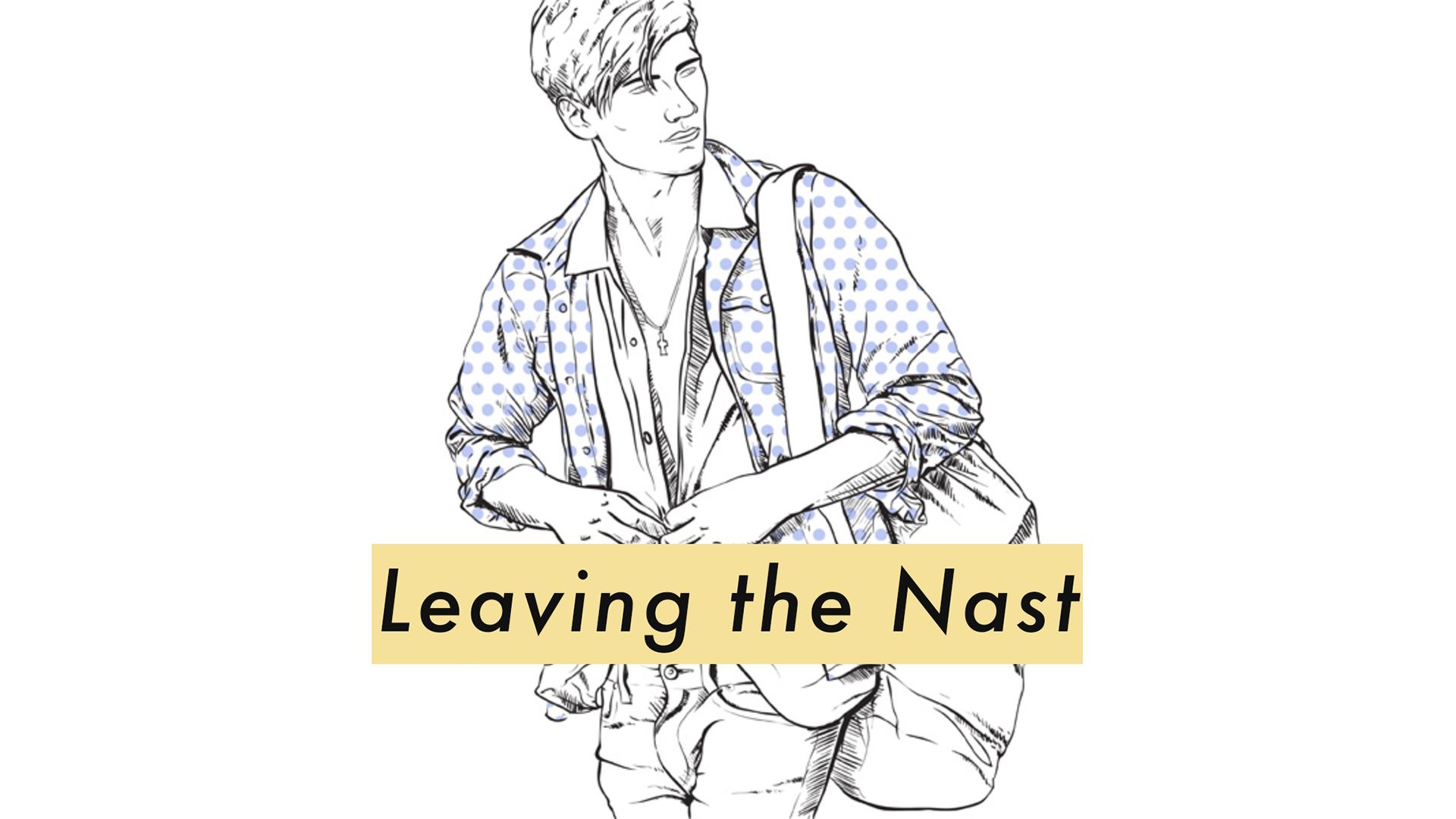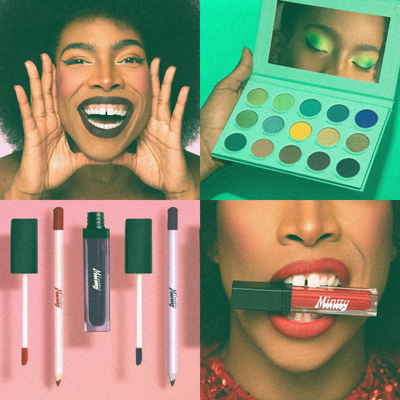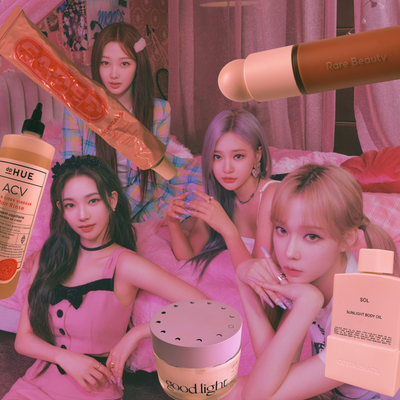
In my previous life, I was a fashion editor at Conde Nast where my biggest job was merely surviving.***
In the never-ending shit-storm of Conde lay-offs, intense personalities and insecure co-workers, the skill that would help me get through another day was simply holding on for dear life. I’d conjecture that 80% of the job was dodging bullets in the hallways, tip-toeing around planted bombs, fleeing from someone’s shade, and taking cover when one of your rivals came walking in your direction. I remember there was once a time when my boss, a middle-aged woman, didn’t get a job at a rival publication and I had to repeat to her just how valuable she was, how beautiful she looked and how crazy they were for failing to see her greatness. Yep – my job made me out to be an excellent actor as well.
SEE ALSO: I’ll never forget what I learned from my first fashion week
But perhaps the craziest part of my job was being able to motivate myself enough to merely walk into that steely office, one full of predators who actively preyed on the weak. When I entered Conde Nast, that was me – completely fresh meat, unscathed from the throes of the vicious industry. My announcement that I landed the gig was written up in a couple of places and left the office chattering before I arrived. Apparently, there were murmurs that I was there to replace senior staffers. And so, when I entered that building that winter morning, there were no warm welcomes or well wishes. I didn’t know it then, but in retrospect, I understand why that was. It was a very unstable time for the magazine industry. Layoffs were happening en masse, what some called the “Conde Nast massacre,” and older staffers were holding on for dear life, refusing to be replaced by younger, digitally-savvy recent grads.
I would soon regret signing that Conde contract.
Still, being young and still two years away from being jaded, my eyes were wide-opened and I was excited to be there. After all, I’d dreamed of this very moment since my journalism school days, working at a company that produced my favorite magazines from Vogue, GQ, Vanity Fair, to the New Yorker.
I would soon regret signing that Conde contract.
In a matter of days, my own boss turned on me, accusing me that I wasn’t a team player for failing to send her all of my personal contacts. Fashion week was around the corner and the assistants were forced to throw a fit to PR who sat me front row instead of them. I was lambasted in the office for the smallest of errors (“Why didn’t you dare come STRAIGHT to my office after I emailed you?!” “So you called their PR just because you’re friends with them?!” “We stay as a PACK during fashion week, you do not say hi to anyone but us!”). It was completely petty. I’d bite my tongue and nod my head and move forward.
Probably the worst part was that I opened up to one of our directors about my personal life.
One day, I remember hearing whispers around the office about how my own team was pushing me out. Colleagues would take me aside into the fashion closet and tell me the things they heard. Apparently my own boss was trying to sabotage my career by making my job impossible. She’d give me tasks like deadlines pushed up a week or throw me busy work so I’d have to finish my actual job in wee hours of the night. It got so bad that I remember experiencing deep anxiety, going for walks to the bathroom just so I could breathe.
Probably the worst part was that I opened up to one of our directors about my personal life – an amateur mistake I’d soon regret. We were on a walk from an appointment and he turned to me asking about why I never opened up about my sex life. I turned flush red and tried to look away. I didn’t want him to think I was a prude or inexperienced. In actuality, I had little to know experience with physical relationships. I told him I wasn’t seeing anyone. He continued to pry and asked why that was. I answered that I was too busy with my very job, which was all very true. That answer wasn’t good enough for him. He wanted something better. I later confessed to him that I was a virgin and I was still waiting for someone special to share that with. He hugged me and said it was all okay, he wouldn’t tell anyone, not that like, it was a big secret for me. It wasn’t that deep.
A few weeks later at a work dinner with colleagues in the fashion industry, wine was spilled and gossip was shared. As I sat there, taking a bite out of my salad, the director swirled his cabernet and gulped an entire glass. He glanced over my direction and smirked. “Did everyone know that that guy right there, he’s a virgin?!” I slumped into my chair, smiled and tried to brush it off. “Ha, that’s really funny,” I replied, my cheeks, sanguine with blood. “No, he told me no one’s ever wanted to sleep with him. Sad.” The entire dinner was uncomfortable, as I remained there, silent for the next 3 hours, my colleagues feeling incredibly awkward.
Personal attacks aside, I’d realize this abuse permeated outside the office.
He took his two fingers and pinched the intern’s nipples and told him to get into his car.
I’d hear things of how my colleagues who go into their showrooms, throw clothing on the floor, tell them how “disgusting” the looks were and leave in a huff. Several publicists told me of sexual harassment and how one director asked to sleep with them even though said director was married. Another told me that at a social engagement in the Hamptons, said director touched this person’s inner thigh and said they would regret not taking him up on the offer. And yet another informed me his professional relationship was severed because he’d refused to sleep with him. But being young, I felt I had absolutely no power. What could I do to shield my colleagues from a predator? What could I possibly do with such little clout? And who would even believe them?
But this director’s behavior was far from abnormal. At a party for Target, I waited out in the rain for my Uber. There, one of my fashion heroes from another magazine, stood, smoking a cigarette. A young, 20-year old came outside to hold an umbrella for him. He was French and told me he was interning for Karla Otto for the summer. Immediately, said fashion hero, a man close to 60, turned to the young intern and started rubbing his chest. The intern started giggling nervously, playing into the man’s fantasies. Fashion Hero proceeded to take two fingers and pinched the intern’s nipples. “Get in the car,” he commanded. Minutes later, I saw both of them head into the rainy night, to never be seen again.
I couldn’t help but think that this poor young man felt helpless in that moment, afraid that if he said no or spoke up, his entire career would be ruined. I was completely filled with guilt in the proceeding days. Troubling thoughts filled my mind: What if he didn’t want to get into that cab? What if he was sharing information with me that he was from Paris because he wanted my help? What if I was the person who could have stopped this abuse?
Later, I confided with another editor on what I witnessed. Without hesitation she glanced at me and shrugged. “Do I think he was a victim? No,” she said without hesitation, while typing up an email. “Young boys come to New York all the time. Usually they have nothing back home and come out of desperation. So they seek older gay men, seduce them, and then get into their social circles. Don’t play dumb. It’s a give and take.”
Quitting was absolutely liberating and completely empowering.
In a matter of a few months, I realized my anxiety was only getting worse. A meeting with one of my mentors for coffee led her to conclude I was only a shell of myself. “I only recognize 15% of you,” she told me. “You need to leave before your entire self is completely dimmed.”
She was right. I hardly recognized who I was. Behind this facade, this steel barrier known as fashion’s bastion, I was just another cog to Conde Nast’s beautiful wheel, one who sold his soul to the industry. And for what? A Conde Nast email and “prestige?” To be able to go into parties without abandon and yield some sort of faux power? I could do without
And so, on a cold winter morning a few years later, I woke up and decided it was time to quit. I called my editor who was out of town and then to HR. They seemed surprised. “No one leaves this job,” HR told me. I smiled, thanked her for taking a chance on me, and emptied my desk. I realized that quitting was absolutely liberating and completely empowering. When you realize you control your own destiny is when your world starts changing for the better.
It’s been five years since my time there and I carried such a burden on my shoulders. For years, I felt sudden pangs of anger, sadness, regret at odd moments of the day. At industry events, I’d resort back to that young man whenever I ran into these colleagues. My heart skipped many beats and my mind would wander back into that dark time. It was only until I listened to a video one of my friends sent me that I was able to finally heal.
It’s by the University of Houston research professor Brene Brown who’s been studying courage, vulnerability, shame, and empathy for 16 years. In the video, called “Boundaries,” Brene talks about how people need to set up boundaries so that they’re able to love better.
“What we do is we don’t set boundaries,” she says. “We let people get away with things that aren’t okay. That’s when we become resentful.”
She goes on: “I assumed for the first 35 years of my life that people were sucking on purpose to piss me off. Why are they choosing these things? They should know better.”
It’s later when a therapist asked her the next question that changed her perspective and in turn my life: “What if people are doing the best they can?”
I repeated those words but specifically catered to my situation: What if these people who are bullies, who hurt others, who want to destroy is because that’s just the best they could do in that very moment? That they didn’t know better. It allowed me to take action with love rather than hate. It allowed me to become confident in my ability to show compassion rather than cower away and spew hate.
https://www.youtube.com/watch?v=vSbOIas6jFc&feature=youtu.be
“I’ll never know if people are doing the best or not but when I choose to it makes my life better,” Brene says.
That simple act has allowed me to let go. Is it okay that these people have sexually assaulted others or abused them or me in any way? Absolutely not. And no, I am not letting them off the hook. But personally, thinking that these people are actually extremely hurt individuals who have deep layers of pain that constricts them to make bad decisions allows me to feel compassion for them. They don’t want to hurt, it’s just that best that they can do. Of course, this isn’t me being completely chivalrous or pretending I’ve become some elevated human being. Thinking this way is completely selfish and allows me to let go of hate and replace that with something much easier: love. It’s learning to let go that I gained the most.
My time at Conde Nast might have not been my dream job, but in a strange way, it allowed me to grow immensely, see the industry as it is and become stronger in my own compassion. And today, after processing this abuse, I realized these people don’t have power over me. They never did.
***The author wishes to remain anonymous and is using a pseudonym for this story. Some minor facts have been changed to protect the writer’s identity.






